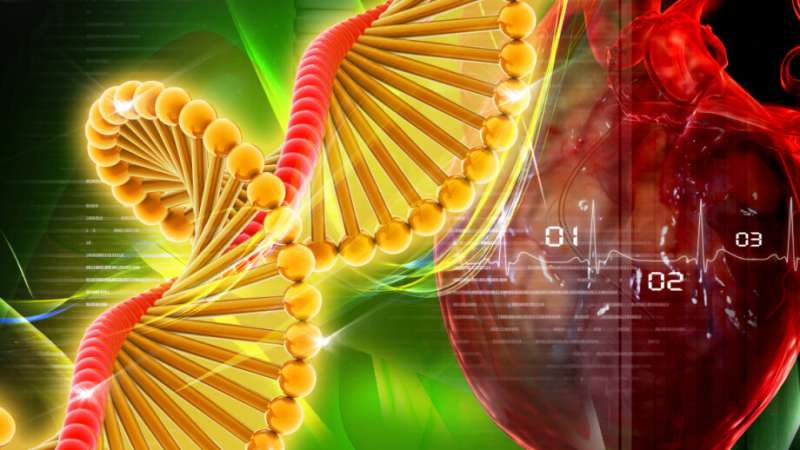Computer method to predict outcomes for heart patients

An international group of clinicians and scientists from MIT and Lund University, among others, have analyzed how individual genetic changes affect the heart muscle. The researchers have created a new computer tool that could help tailor treatments for heart patients with inherited heart disease. The study is published in NPJ Genomic Medicine.
The global study, by researchers from the Wellcome Sanger Institute, University of Cambridge, Massachusetts Institute of Technology and Lund University, shows how genetic mutations can cause different cardiovascular diseases with varying outcomes, depending on where they occur in a gene, and the possible mechanisms behind this.
The research verifies which genetic variations and potential 'hot spots' are linked to different types of inherited heart diseases where the functioning of the heart muscle is impacted. These may have different outcomes and treatments, including invasive surgical procedures such as fitting defibrillators and heart transplantation.
"This paper shows the power of integrated clinical, biological and structural data along with computational analyzes" explains one of the researchers, Mauno Vihinen, Professor in Medical Structural Biology at Lund University, who was involved in the data analysis.
The researchers developed an integrated computerized system from genomic data combined with biological and chemical information, which was then validated with global data from over 980 patients with inherited heart muscle disease.
The model can help inform future patient care, by enabling cardiologists and clinical geneticists to work in unison with patients to better assess the potential risk of developing disease, meaning that more effective and personalized treatment plans can be created.
Cardiomyopathies are a group of diseases where the heart muscle is affected and can cause the heart to be a different shape, size or structure, and can impact the functioning of the muscle. About 0.2 percent of the global population, roughly 1 in 500 people, have inherited cardiomyopathies, making it the most common form of genetic heart disease.
Genetic variations within the cardiomyopathies have been shown to require different treatments including drugs, cardiac defibrillator, or even a heart transplant. However, it has been difficult to understand how and why some genetic variations can have such different outcomes and how much certain variations impact a person's risk. Understanding this in more detail can help inform which treatments could be best and when they should be started, allowing for earlier, more personalized treatment plans to be created depending on which variants the individual carries.
In the new study, the researchers built a novel computer-based model to predict how genetic variations may contribute to changes in troponins, which are important proteins involved in these inherited heart diseases. They then analyzed freely available, global data from around 100 previous studies pertaining to over 980 patients globally to investigate the impact of genetic variations on the interactions between proteins in the heart muscle. As a result, the team created an approach that shows the different genetic 'hot spots' and their clinical outcomes.
"The combination of protein structural analyzes with bioinformatic, genetic and epidemiological studies facilitated identification of disease-specific prognostic features," explains Professor Mauno Vihinen.
While further research is now required to see if new drugs could be developed to target some of these genetic hotspots, the researchers hope that this method will be used to help inform medical decisions and encourage future global studies into this area.
Dr. Rameen Shakur, lead author and clinical scientist in cardiology at Massachusetts Institute of Technology said:
"This study is the next step in integrating precision cardiology into clinical care, and working more closely with clinical genetics colleagues and patients with their families, bridging the gap between research and day to day treatment decisions. This research has allowed us to also open the door to potential new therapies, which we hope to introduce soon."
More information: Rameen Shakur et al, Prognostic implications of troponin T variations in inherited cardiomyopathies using systems biology, npj Genomic Medicine (2021). DOI: 10.1038/s41525-021-00204-w





















